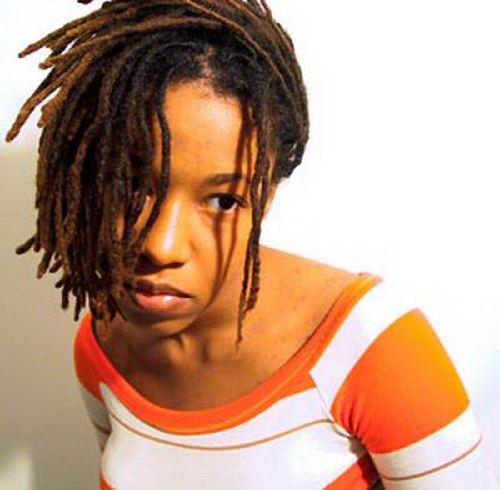
I find it beguiling that something God created, so beautifully created, could be considered a highly volatile and controversial topic. But to many black women, broaching the topic of natural hair can result in a verbal nuclear war. It has been a don’t-go-there-zone for too many years. For a world that is obsessed with beauty, it seems strange that natural hair has been pushed to the curb. As a brother once pointed out, we live in a sick world that expects people to slice themselves, starve themselves, transform themselves, erase themselves, deny themselves and sometimes even kill themselves in order to fit the unrealistically rigid standardized model of beauty. The pressure to conform to this standard is high.
The definition of beauty and sexuality itself has been stifled and restricted to a stereotypical description that has left out the natural-born black woman as well as a good percentage of the world’s females. But the Black woman is the one that has suffered the most. Black women who decide to stay true to their roots barely see any positive reflection of themselves in the media or anywhere else.
Natural hair (which is the hair that we are all born with, without any form of European enhancement) seems to elicit all sorts of reactions from different people. I have worn my natural hair since the day I was born.
I have never “permed” it, and I get a lot of compliments. But most of these compliments are from Black men, White men and White women, as well as other natural sistas. I do not go around fishing for compliments, but I find those dynamics interesting. Other natural-haired sistas have shared similar experiences. But what I’ve found funny is that some sistas have
approached me, telling me how brave they thought I was to walk around with hair “like that.” It is not meant to have a negative connotation. Most times, it is said with an aura of awe and wonder at the courage exhibited because the person herself is not confident enough to bear her roots.
I have heard many stories of black mothers burning their daughter’s ears with hot combs in the efforts of getting rid of those ‘ugly nappy locks’. Again, I find it interesting that one is seen as brave when one walks around in the way that The Maker saw fit to create us. Some other natural sisters say that they have been daunted and viciously attacked by angry glares that screamed: “How dare you expose us to the rest of the world?” Then there are those who attack other black women and tell them that they should be ashamed of showing their real hair.
To vilify the Black woman’s natural look is to attack the very core of her sexuality. Beauty and sexuality go hand in hand. A woman who does not feel beautiful will not be able to express her sexuality efficiently. In fact, her sexuality will be stumped. Natural hair has been vilified since slavery and the colonial days, and that stigma has remained until today. Many black women would rather be caught dead than be seen with their God-given hair. The fact that they are bombarded by commercials and campaigns that glamorize Eurocentric beauty does not help. Yet those are the prominent images that black women are lambasted with every single day of their lives, seeing barely anything that reflects their true selves.
I have often had people tell me that I can get away with showing my natural hair because I have ‘good hair.’ Which begs the question: “What exactly is good hair?” African hair comes in so many textures. Mine is somewhere in the middle. What has baffled me the most are those people who insist that I must have some kind of European ancestor in my family because my hair is softer and of a mildly straighter texture. I am sorry to disappoint, but that is not the case. The only people in my family who have hair like mine are my sister and another cousin on my father’s side. Incidentally, both my grandmothers had a texture called ‘munyerere’ in the Luganda dialect, a baby soft curly texture associated with bi-racial people. And, as far as I know, none of them are bi-racial or had any European ancestor in their lineage. So basically, Blacks of the same family, even those with no mixed lineage, can have different shades and hair textures.
All these stereotypes and assumptions have a long history...
Part II of "Natural Hair, to Be or Not to Be" will be available next week.

